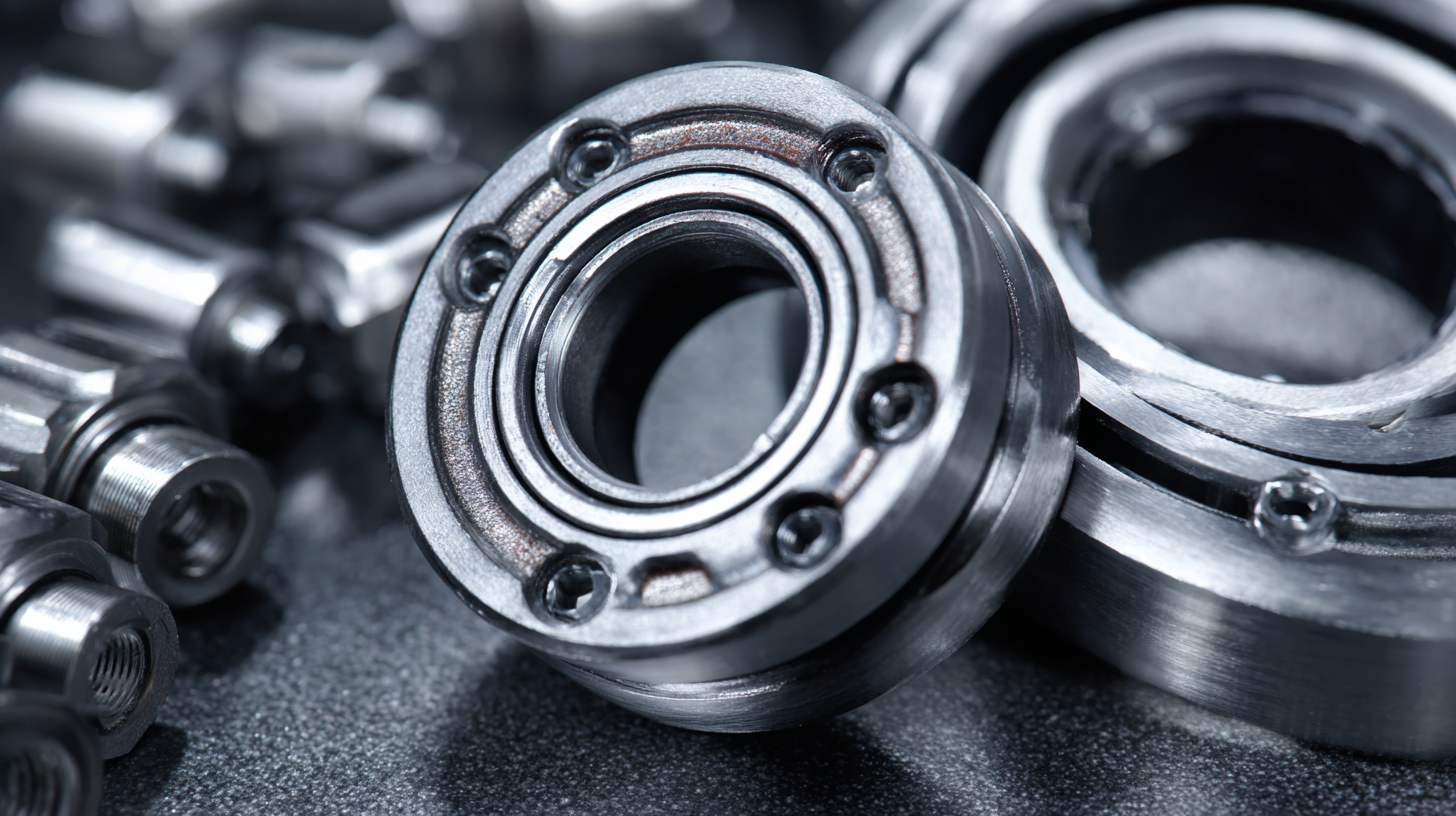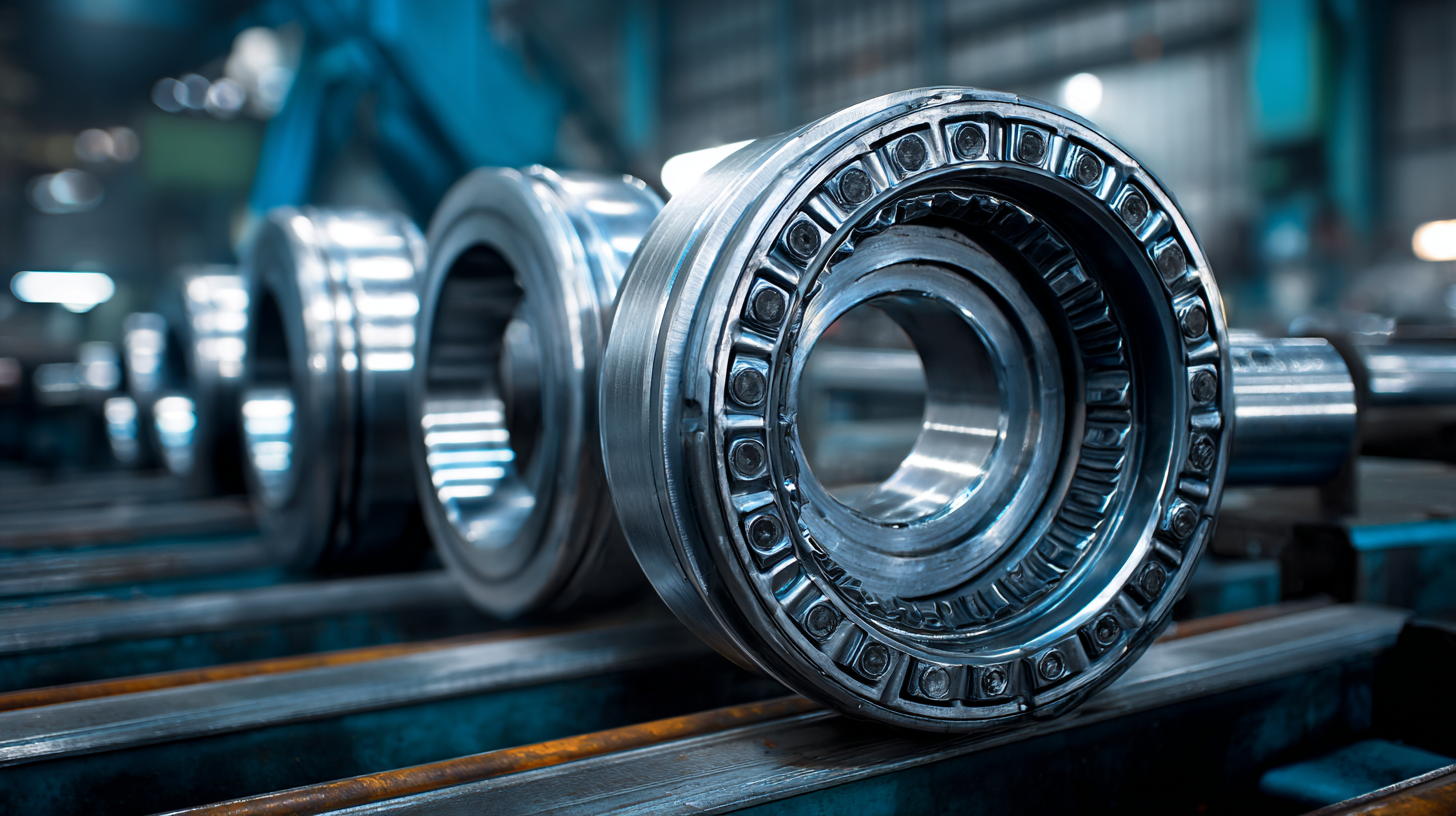How to Select the Best DIN Standard Bearings Supplier for Your Business Needs
In today's competitive industrial landscape, selecting the right DIN Standard Bearings Supplier is crucial for enhancing operational efficiency and reliability. According to a recent report by Market Research Future, the global bearing market is projected to reach USD 105.69 billion by 2027, growing at a CAGR of 5.3% from 2020 to 2027. This growth underscores the importance of partnering with suppliers who not only understand the stringent requirements of DIN standards but also offer high-quality products tailored to specific business needs. As industries continue to evolve, ensuring that a supplier adheres to these guidelines can significantly impact the longevity and performance of machinery, ultimately influencing a company's bottom line. Therefore, understanding the key factors in selecting a DIN Standard Bearings Supplier is essential for businesses aiming to leverage the full potential of their operations.
Understanding DIN Standards: A Key Factor in Bearing Selection
Understanding DIN Standards is crucial for selecting the right bearings for your business. The Deutsches Institut für Normung (DIN), Germany's national organization for standardization, provides guidelines that ensure quality, reliability, and compatibility of bearings in various applications. According to a report by the International Bearing Industry Association, up to 40% of bearing failures can be attributed to non-compliance with standardized dimensions and tolerances. Thus, selecting a supplier knowledgeable about DIN standards can significantly reduce the risk of operational failures.
Tip: When evaluating potential suppliers, check their certification and compliance with DIN standards. A reputable supplier should readily provide documentation that illustrates their adherence to these critical specifications.
Furthermore, DIN standards cover a wide range of bearing types, including ball bearings, roller bearings, and thrust bearings, each having specific dimensional and operational characteristics. This specificity allows businesses to narrow down choices quickly and make informed decisions that meet their unique operational demands. Reports indicate that businesses utilizing standardized bearings experience lower maintenance costs and improved machinery performance, showcasing the financial benefits of investing in quality suppliers.
Tip: Develop a checklist based on DIN specifications that are relevant to your industry needs, ensuring every supplier you consider aligns with your operational requirements.
Evaluating Supplier Manufacturing Capabilities and Quality Assurance
When selecting a DIN standard bearings supplier, evaluating their manufacturing capabilities and quality assurance processes is paramount. First, investigate the supplier's production facilities. A state-of-the-art manufacturing plant equipped with advanced technology ensures precision in the production of bearings. Look for suppliers that adhere to modern manufacturing standards, such as lean production techniques and automated processes, which can enhance efficiency and reduce defects. Their capacity to scale production according to your business needs is also crucial; suppliers should be able to handle varying order sizes without compromising quality.
Quality assurance is another critical factor in supplier evaluation. A robust quality control system not only leads to the creation of reliable products but also minimizes the risks of failures and associated costs down the line. Inquire about their testing procedures, certifications, and compliance with international standards. Whether it’s through regular audits, stringent material inspections, or the implementation of ISO standards, a commitment to quality assurance speaks volumes about a supplier’s dedication to delivering exceptional products. By prioritizing these aspects, businesses can forge long-lasting partnerships with reliable bearings suppliers that align perfectly with their operational needs.
How to Select the Best DIN Standard Bearings Supplier for Your Business Needs
| Supplier Criteria |
Evaluation Method |
Importance Level |
Notes |
| Manufacturing Capabilities |
Review production facilities and technologies used |
High |
Check for modern machinery and capacity to meet demand |
| Quality Assurance Standards |
Request certifications and inspect quality control processes |
High |
ISO 9001, TS16949 compliance are favorable |
| Lead Times |
Assess average delivery times and responsiveness |
Medium |
Critical for maintaining production schedules |
| Cost Competitiveness |
Compare pricing against market averages |
Medium |
Ensure value for quality offered |
| Customer Support and Service |
Evaluate responsiveness and support channels |
Medium |
Good support can solve issues quickly |
| Reputation and Reviews |
Research customer reviews and feedback |
High |
Positive feedback can indicate reliability |
Assessing Global Reach and Export Experience of Suppliers
When selecting the best DIN standard bearings supplier for your business, assessing the global reach and export experience of potential suppliers is crucial. A supplier with a robust international presence can effectively navigate various market regulations and distribution channels, ensuring that your bearings are delivered on time and within compliance standards. This proficiency can save your company valuable time and resources, allowing you to focus on your core operations while relying on their expertise to manage logistics.

Moreover, a supplier’s export experience often correlates with their ability to provide high-quality customer service and support. An experienced exporter understands the complexities of international shipping, including customs clearance and documentation requirements. This knowledge is vital to prevent delays and complications during the procurement process. In addition, suppliers with a track record of successful international transactions are more likely to have established relationships with freight forwarders and customs agents, further streamlining the process and mitigating risks associated with cross-border trade.
Key Factors in Supplier Communication and Customer Support
When selecting a DIN standard bearings supplier, effective communication and robust customer support are paramount. A supplier's ability to communicate clearly about product specifications, availability, and lead times can significantly impact your operations. When initial conversations reveal a supplier's responsiveness, active listening, and technical knowledge, it demonstrates their commitment to a successful partnership. Look for suppliers who can simplify complex technical jargon, ensuring you fully understand the products and their functionalities.
Another critical aspect is the level of customer support offered. A reliable supplier will provide ongoing assistance throughout the purchasing process and beyond. Consider their availability to address issues, whether it's through dedicated support channels, real-time online tools, or timely follow-ups. An exceptional customer support team will not only resolve problems efficiently but will also take the time to understand your specific needs. This personalized approach fosters a relationship of trust and reliability, ultimately enhancing your business's operational efficiency.
Key Factors in Selecting DIN Standard Bearings Supplier
Comparing Pricing Structures and Terms for Business Efficiency
When selecting a DIN standard bearings supplier, understanding the pricing structures and terms they offer is essential for achieving business efficiency. Different suppliers may have varying pricing models, which can significantly impact your overall budget. It's crucial to compare the cost of bearings concerning their quality and durability. Additionally, consider whether the supplier offers bulk discounts or loyalty programs that can provide further savings as your business grows.
Another aspect to examine is the payment terms and conditions laid out by the supplier. Clear terms can help streamline your procurement process, ensuring that you maintain cash flow while also securing the bearings you need in a timely manner. Look for suppliers who offer flexible payment options or incentives for early payments, as this can enhance your financial management. By carefully analyzing these pricing structures and negotiated terms, businesses can choose a supplier that not only meets their quality standards but also aligns with their financial goals for long-term success.

Home
Products
Industrial Bearings
Deep Groove Ball Bearings
Self-Aligning Ball Bearings
Angular Contact Ball Bearings
Cylindrical Roller Bearings
Taper Roller Bearings
Spherical Roller Bearings
Bearing housing or Accessories
Miniature Bearing
Thrust ball bearing
Radial Spherical Plain Bearing
Pillow Block Bearing
Needle Roller Bearings
Automotive Bearings
Agricultural Bearings
Special Material Bearings
Industry Application
About Us
News
Contact Us





